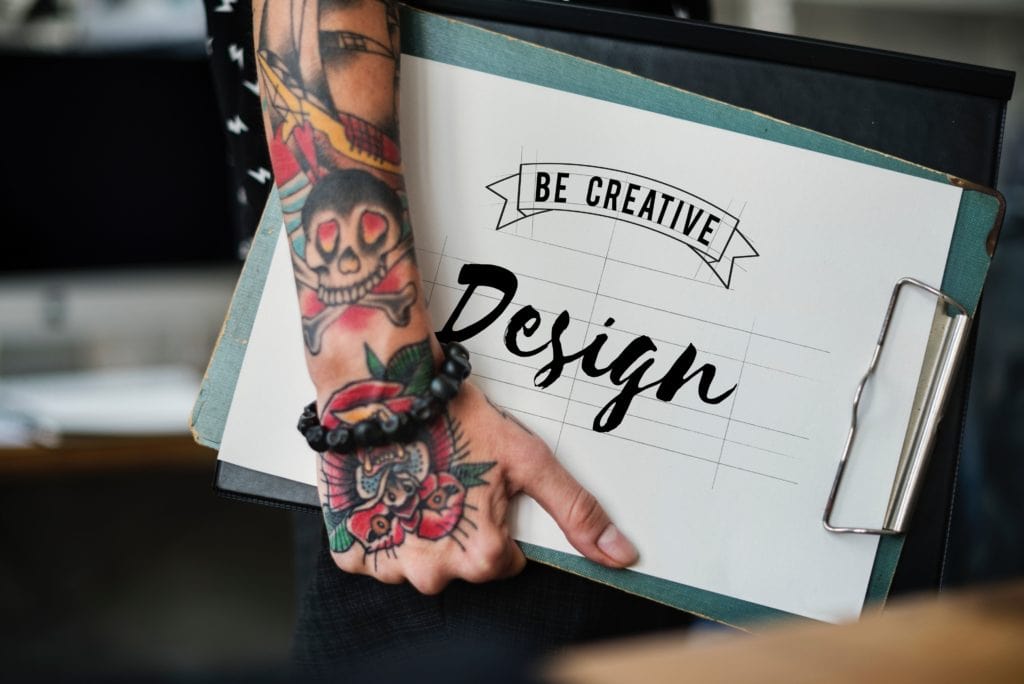Someone just hiring a web designer or developer has a long list of questions they might want to ask them before they start a project.
We have compiled this list of common questions you will ask a web designer and web developer to speed up your workflow and make it easier for you to get things done. Below you will find questions that are common and some that you likely did not think of.
We will also discuss the pitfalls of forgetting to ask certain questions and what you can expect if you don’t ask these important questions. One important note is that these questions are for a web designer rather than being the other way around, sometimes designers need to ask questions for the client but sometimes you as a client need to be ready to explain things to a designer.
1. Show me your portfolio

You might skip this one if you found the person or company online. Many web designers often have pages of examples, look through them and make notes. Asking a web designer for their work is a common practice.
This helps you discover things like strengths and weaknesses of a designer before you ever hire them. Does the designer work more independently or in a team?
It will give you an idea of that person’s style. Sometimes you can run into a problem where a designers style does not match a clients vision. Someone does websites for a rapper is unlikely to be a good company to websites for a law firm. This is an opinion but there are a lot of facts behind this.
2. What is your design process?
Every designer should use some kind of flow chart they used to complete projects. While this may not be something set in stone, everyone company is different.
The more people this company has worked with the more likely it will be that they have a written process. Make them walk you through this design process. Do you see anything that concerns you as a client? Are they missing any pieces that you might want to ask them about?
3. What types of payment do you accept?
This might seem like a basic question but certain designers charge different ways. Certain will charge flat fees for projects, some do hourly and some will be based upon recurring.
You should know before the project starts, not only how this company will charge you but what payments they accept. Are you working with someone from your own country then likely they take the same form of monetization? What about someone from another country?
Then you have to think, do they only want checks, cash, paypal, stripe? Each payment company works different and costs in different fees. You may have to sign up with an account just to pay this company.
4. What platforms do you work with?
Not all web designers work on the same platform. Some work in WordPress, others might prefer Squarespace or Wix. Some will hate all of those technologies and prefer hand coding.
There isn’t one right way to make a website, there are hundreds of not thousands of ways to build websites. And not every single way will be right for all projects.
It takes several years and expertise to build up a skill set which allows someone to pick what technology you should use for what project. There is no catchall and if someone tells you there is, they are lying.
In the ten years I’ve done web design work, I have focused solely on doing WordPress and hand coding which differs completely from Wix or Squarespace. I’ve played with these technologies but I have never used them nor would I spend the time to learn them completely.
Hire based upon your project requirements. The person or company should fit the project, the same goes with your website.
5. Can you give me an estimate on turnaround time?
First let me say this is a loaded question from any client. Asking what a turnaround time is, is like asking a designer to look up in the sky and tell you when it will rain. It isn’t anything more than a guess.
We can control many things as designers, what we can not control nor predict is the client. A client’s demands can change the scope of a project faster than anything else I’ve ever seen.
Asking a designer to change simple things may look easy but in fact require hours if not days of work depending on the site. Even the simplest task can be hair pulling when it comes down to it.
So a better question to ask would be, based upon my list of demands, how fast do you think you can turn this around? Also, a question you should ask yourself, do I need this project fast?
If you say no, then it’s likely that if you give your designer breathing room, they will give you a break. That sounds like a win-win.
6. Can I get a written estimate of expenses?
WordPress often comes with licensing and other things that have to be paid for. Some rather greedy companies will charge extra money for things like plugins, domain names, hosting, etc.
Knowing the prices of these things can save you money. If someone is charging you $50 for a domain name, they are likely ripping you off. Registering a domain name should be a fairly easy process and while I understand it requires work, in most cases you should realize the time it takes.
Ask for a breakdown of things like time spent on these additional tasks. It will help you feel better and if the person is honest, they should be able to supply it.
Did they spend an hour searching for the right domain name for you because you are picky? Then you should pay $50 for that domain name. As you are paying for their time.
Be aware of these extra expenses and ask beforehand. Never assume the person is going to work for free.
7. After it’s completed what kind of support can I expect?
I always throw in a month of free support with any websites I build as a way of good faith. Not all companies work the same. Some are more generous throwing in months of free support, most are probably less, charging as soon as you call.
Some companies will offer documents for you to read once your website is built. Others are likely to do something different.
I record a video and walk my clients through their new website. Always ask about support, do not assume that just because someone builds you something they won’t charge you as soon as it’s done. It all depends on the company.
8. What services do you cover?
Once you find someone who is a good fit for your company, you often want to make sure you keep them happy through timely payments and good communication. You should also ask things like what other services do you cover?
Not all companies offer the same level of services. Some are more specialized offering only web design. While others may offer things like
- Copyrighting
- SEO
- Security and Malware Removal
- Graphic Design
- Logo Design
- Hosting
- Marketing
These are just a few of the more common services you can find some design companies offering to clients. You should ask so that you can plan for the future.
If a company or person really works well with you, then keep the work flowing, most companies are more than happy for repeat business.
9. What rights do I have after completion of my website?
You need to determine what rights you have after a website is completed? For example, did the designer make you a simple logo, do you get to keep those files? What rights do you have to the artwork, do they sign them over to you?
All of these questions may seem very simple but at the end of the day, you need to know. Will you have full rights to all artwork and anything related to the website? If so, make sure you have that in writing so that later, the designer can’t pull this from you.
Of course it’s possible some rights can be taken away due to lack of payment or otherwise. You website may be revoked once you fail to make payment. So always ask, what are my rights?
10. Do I need to sign a contract?
If you aren‘t a person who enjoys contract dealings, I can understand that completely. I don’t like contracts myself but I do use an SOW (statement of work).
Not every company will require a contract, although most should require you to sign something that shows you things like deadlines, deliverables and what to expect.
This will protect not only you but the company. You want to make sure you’re working with someone who is going to deliver and not disappear overnight with money.
A SOW or contract will give you a clear understanding of what to expect without having to look at tiny type and jargon you don’t understand.
11. What is your cancellation fee?
Every company no matter small or big has some kind of cancellation fee that’s involved with canceling a job in the middle of the work that is completed. I, usually require that all the licensing fees be paid and some money for the time of the work involved (although depending on the circumstances).
At a bare minimum expect that you as the customer will probably have to pay for all licenses related to your website. This is so that the designer themselves do not have to come out of pocket for this expense.
At this point they may hand over this license to you or keep it for future customers. I keep my licenses and will reuse them on projects. You also might give up all rights to artwork and media that was used on the site depending on if that company will allow you to keep they have already designed.
There may be other additional charges.
12. Can you recommend x?
Working in web design or even graphic design you build a list of other like-minded people. It’s not uncommon for designers to know people who do many work. We often design websites for busy professionals and small to big businesses.
This can mean that they can often recommend you to someone else who does a different work they do not do. That can is very helpful because a referral is usually a good way to seek people out.
It can also lead you as a client to better deals through using people in similar circles. Just beware bad relationships as they will take you down the rabbit hole of other bad relationships.
13. How can I bring traffic to my site?
Someone who is just starting a brand new website will be very confused by how to bring in clicks. The fact is as a designer they will look to them to guidance on how this will happen.
The old saying if you build it they will come, is not true of websites. If you build it, you still need to advertise in some way to potential clients to get word out.
Websites are little tiny islands in a sea of other sites that do all manner of things. You need to spend hours, time and money to market your business so you can get traffic. That is one of the downsides of websites but on the upside once you are established this will decrease.
Understand that building a website is design, getting people to it is marketing. There is a huge difference, and it’s really two different fields of study.
14. What are the best ways to communicate with you?
Some designers or companies only use certain communicates to keep things like costs down. I use Plutio as a way of organizing client ideas and files. Each company will be different and this rule is no exception.
If you are constantly calling a client, then it is likely that you will pay a much higher price. Some companies will require communication only through emails outside of these types of channels.
Ask the company what they prefer and see if you can work that into your communication. Someone who is constantly emailing is going to be charged one price while someone who can communicate through an application will like be charged another price.
Some people might not care and allow you to contact them through all forms of communication. You also need to find out the hours the company is available for questions. Most will work standard work hours from 8 am to 5 pm.
15. What makes you different from your competitors?
This is a question that works both ways but it’s important for a company or designer to know what makes them stand out. They might have a unique feature that really makes working with that person or company attractive.
Knowing these things can also stop you from feeling like the grass is greener with someone else. Once you have a website up and running you are likely to get bombarded by companies who want your business.
Stick to what you know and use common sense to make a decision if a person isn’t working out for you. But keep in mind those special skills they may have.
I hope these questions have made you realize that there’s a lot that goes into hiring a web designer. I hope web designers can also learn how these questions can help them find better clients. The more questions that both parties ask the better ideas are generated during the discovery process.





